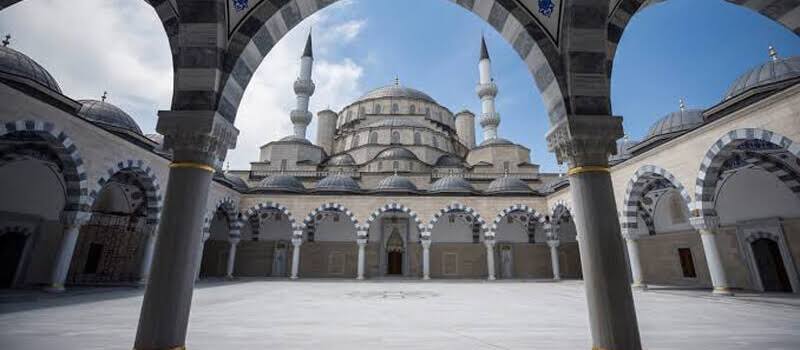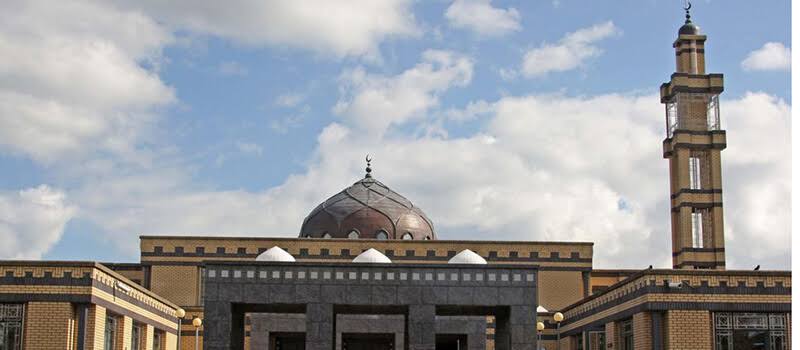Daily Worship Schedule in Fujairah: A Guide
Prayer, or “salah,” is one of the five pillars of Islam and a cornerstone of spiritual practice for Muslims around the world. In Fujairah, the serene coastal emirate of the UAE, the call to prayer resonates daily, guiding the faithful to pause and engage in devotion. Understanding the daily schedule is essential for both residents and visitors to align their routines with this sacred practice. Here, we delve into the significance, schedule, and local aspects of prayer schedules in Fujairah.
The Importance of Worship in Islam
Salah is more than a religious obligation; it is a spiritual connection with the Creator. Muslims perform five prayers daily at prescribed times:

- Fajr (Dawn Prayer): Performed before sunrise, this prayer signifies the start of a new day and is marked by quiet reflection.
- Dhuhr (Noon Prayer): Offered when the sun is at its zenith, it provides a spiritual pause during the hustle of midday.
- Asr (Afternoon Prayer): Performed in the late afternoon, it emphasizes mindfulness as the day begins to wind down.
- Maghrib (Sunset Prayer): Offered immediately after sunset, it marks the transition from day to night.
- Isha (Night Prayer): Performed after twilight fades, it concludes the day with devotion and peace.

Prayer Schedules in Fujairah
The exact timing of these prayers changes daily based on the position of the sun. In Fujairah, a city known for its natural beauty and tranquility, the prayer schedule is meticulously calculated to ensure accuracy. The schedule is influenced by factors such as the city’s geographical location, the time of year, and the lunar calendar.
Below is a general outline of the prayer schedules in Fujairah. Note that these are approximate and should be confirmed daily:
- Fajr: Starts approximately 1.5 hours before sunrise.
- Dhuhr: Begins shortly after the sun crosses its zenith.
- Asr: Varies depending on the length of shadows, typically mid to late afternoon.
- Maghrib: Commences immediately after sunset.
- Isha: Starts around 1.5 to 2 hours after Maghrib.
The Role of the Adhan
The adhan, or call to prayer, is an integral part of Islamic tradition. Broadcast from mosques across Fujairah, the adhan serves as a gentle reminder for the faithful to prepare for prayer. Its melodious recitation creates a sense of spiritual unity, resonating with worshippers regardless of their location within the emirate.
Fujairah’s Unique Spiritual Landscape
Fujairah’s mosques and prayer spaces are central to the emirate’s cultural and spiritual identity. Some notable landmarks include:
1. Sheikh Zayed Mosque
- A stunning architectural marvel, the Sheikh Zayed Mosque in Fujairah is one of the largest mosques in the UAE. Its grand prayer halls accommodate thousands of worshippers, particularly during Friday prayers and Ramadan.
2. Al Bidya Mosque
- Known as the oldest mosque in the UAE, Al Bidya Mosque is a historical gem nestled amidst Fujairah’s mountains. Its humble design and tranquil setting offer a unique prayer experience.
3. Community Mosques
- Scattered across Fujairah, community mosques serve neighborhoods with smaller, intimate spaces for daily prayers, fostering a sense of local camaraderie.
Tips for Observing Prayer Times in Fujairah
For those living in or visiting Fujairah, maintaining adherence to prayer times is made easier with these tips:
1. Use Mobile Applications
- Many apps provide accurate, real-time schedules specific to Fujairah, complete with adhan notifications and Qibla direction.
2. Check Local Mosques
- Prayer schedules are often displayed on boards outside mosques, ensuring easy access to accurate timings.
3. Plan Your Day
- Aligning daily activities with prayer times fosters a balanced routine and reinforces spiritual mindfulness.
4. Respect Local Customs
- During prayer times, especially during Jumu’ah (Friday prayer) and Ramadan, businesses may close temporarily to allow employees and patrons to pray.
Special Occasions and Prayer Schedules
Prayer schedules hold particular significance during Islamic holidays and special occasions, such as:
1. Ramadan
- During the holy month of Ramadan, the taraweeh prayers are performed after Isha, adding a special spiritual dimension to nightly worship.
- Suhoor (pre-dawn meal) and Iftar (breaking the fast) are closely aligned with Fajr and Maghrib prayers, respectively.
2. Eid Prayers
- Eid al-Fitr and Eid al-Adha begin with special congregational prayers shortly after sunrise. Large gatherings are held at mosques and open prayer grounds across Fujairah.
3. Jumu’ah (Friday Prayer)
- Friday prayers replace Dhuhr on this day and are marked by a sermon (khutbah) delivered by the imam. Attending Jumu’ah is a communal obligation for Muslim men.
The Spiritual Serenity of Fujairah
Fujairah’s natural beauty enhances the spiritual experience of worship. The emirate’s tranquil beaches, majestic mountains, and serene environment provide an ideal backdrop for reflection and worship. Many residents and visitors find solace in combining their prayers with moments of quiet contemplation in nature.
Conclusion
Prayer schedules in Fujairah are a vital part of daily life, reflecting the emirate’s deep-rooted Islamic traditions and values. For Muslims, adhering to these times strengthens their spiritual connection and fosters a sense of discipline and peace. Whether you are a resident or a visitor, embracing the rhythm of prayer in Fujairah offers a unique opportunity to experience the emirate’s rich spiritual culture and serene way of life.
Do follow Uae stories for more Updates













